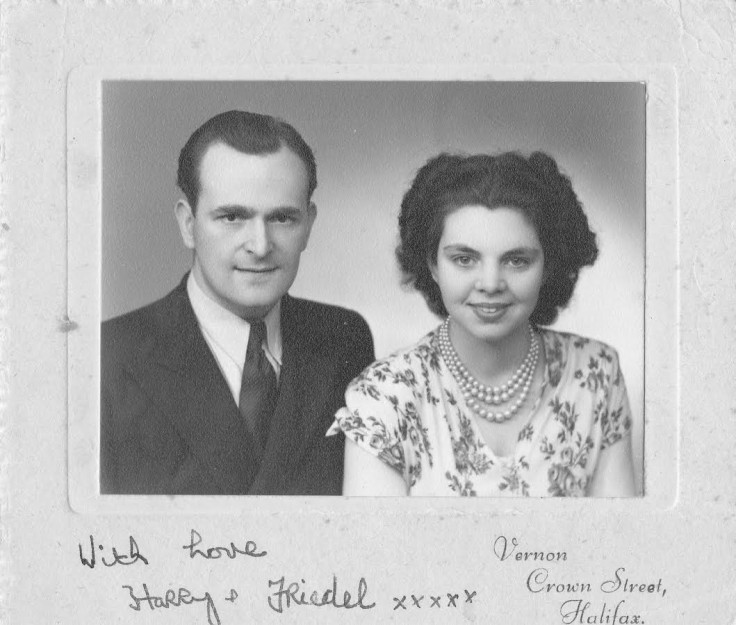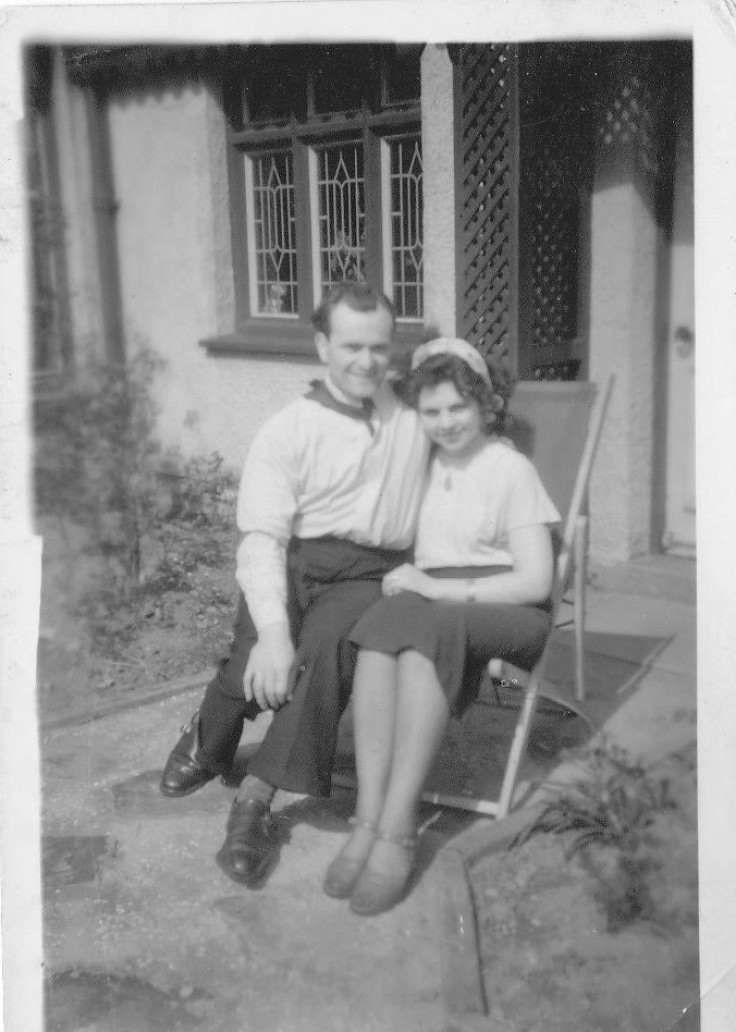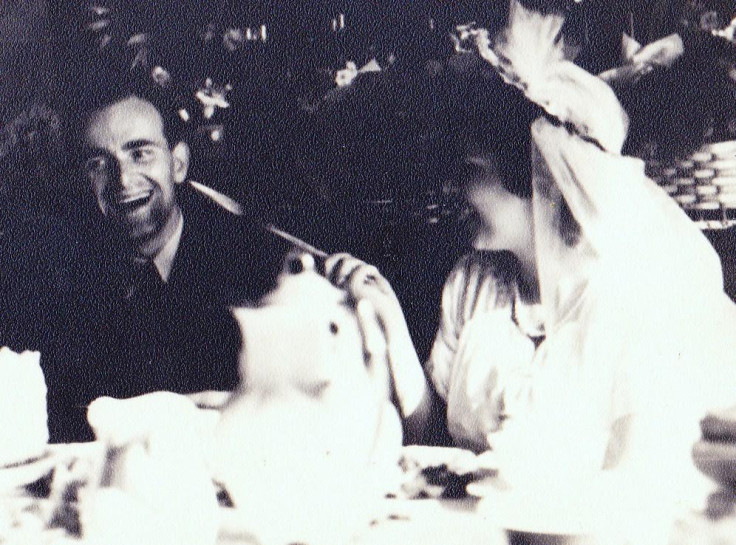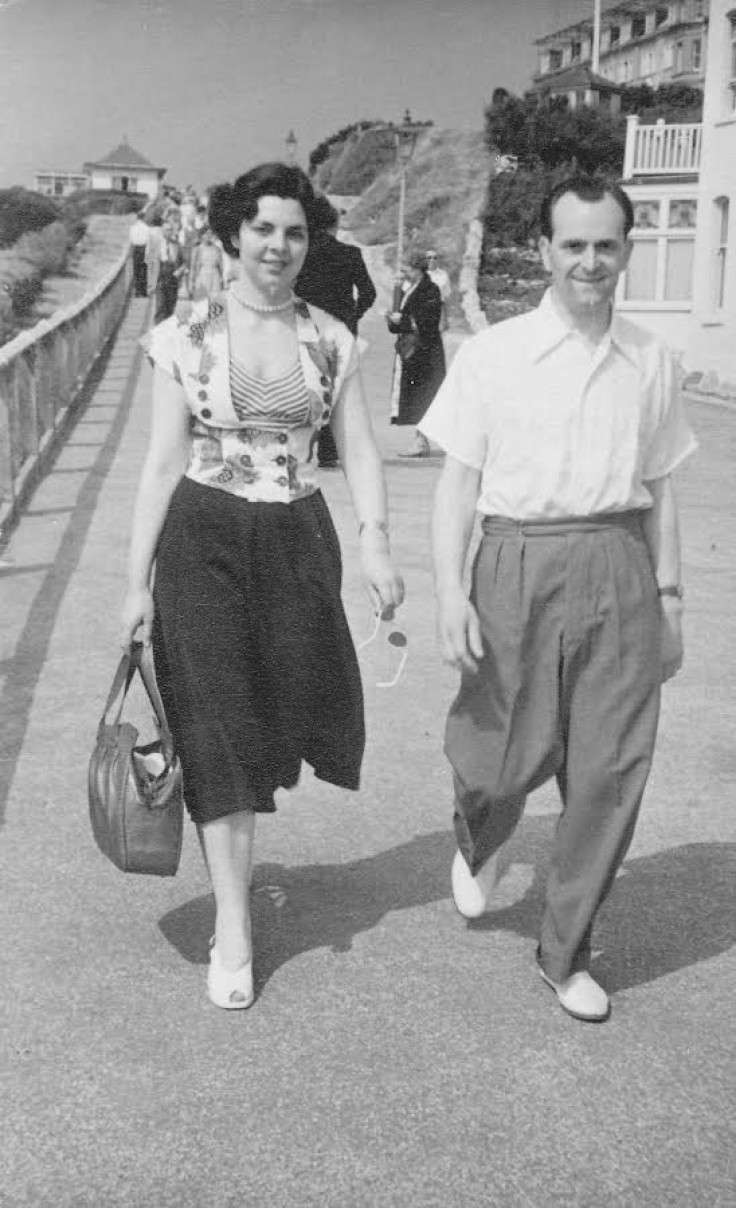Christmas Eve, 1945: A love story about a British soldier and a German woman
This was a unique Christmas because for the first time since 1938, the entire world was at peace.

It snowed on Christmas Eve day. It fell like icing sugar and dusted the city as if it were a stale and crumbling Christmas cake. The peddlers, black marketeers and cigarette hustlers scrambled to finish their commerce before the church bells pealed to celebrate the birth of Christ.
Along the St Pauli district, steam-powered trucks delivered beer and wine to the whorehouses, which expected exceptional business from nostalgic servicemen. Across the Reeperbahn the lights burned bright, while in the refugee camps the homeless huddled down against the cold, warming themselves with watery soup and kind words provided by visiting Lutheran priests.
The airport was somnolent; the servicemen charged with keeping it operational were as sluggish as a cat curled up on a pillow before a fire. Outside the communications tower, LACs took long cigarette breaks, draped in their greatcoats. In between puffs and guffaws, they swapped lewd jokes or tales about their sexual exploits with German women.
The air traffic control nest was unmanned for the next few days. The radio transmitters hummed emotionlessly because the ether above was empty and the clouds ripe for snow. Nothing was expected to arrive or depart until Boxing Day.
On the ground, the roadways around the airport were quiet because the fleet of RAF vehicles was stabled at the motor pool for the duration of the holiday. Everywhere it was still, except on the runway where a platoon of new recruits cleared snow from the landing area.
At the telephone exchange, the switchboard was staffed by a bored skeleton crew who waited for their shift to end. The normal frenetic noise and activity from hundreds of calls being patched and dispatched through the camp to the military world in Germany and Britain was hushed as there were few people left to either place or receive a call. Some communication operators hovered around mute teletype machines, which awoke every hour and furiously printed out wind speed, temperature and ceiling levels – 'For bloody Saint Nick,' someone remarked.
This was a unique Christmas because for the first time since 1938, the entire world was at peace. So anyone who was able took leave and abandoned our aerodrome for a ten-day furlough. For those of us who remained, a Christmas committee was formed to organise festivities.
The Yule spirit around camp mirrored that of terraced-house Britain. It was constructed out of cut-price lager and crêpe paper decorations with the unspoken motto: 'Cheap but cheerful cheer in Fuhlsbüttel.' In the mess hall, a giant Christmas tree was erected dangerously close to a wood stove by the Xmas team. They had festooned it with glittering ornaments and placed faux presents underneath its boughs. Sleighs and Father Christmas figures cut from heavy paper were pinned to the walls as festive decorations. Mistletoe dangled from light fixtures and gave our dining hall the appearance of a holiday party at a carpet mill in Halifax.
On the morning before Christmas, I negotiated with the head cook for extra rations for Friede and her family to allow them a holiday meal. The cook was an obliging Londoner whose mastery of the culinary arts began and ended with the breakfast fry-up. Never one to say no to sweetening his own pot, the cook amicably took my bribe of tailored shirts in exchange for food. He let me fill my kit bag to bursting with tinned meat, savouries and sweets.
"Give the Hun a bit of a treat tonight," he said. "Take the pork pie along with a bit of plum pudding."
"What about some cheeses?"
"Sure, I've got plenty, could be a bleeding monger at the market with all the Gouda and Edam," the cook said. "No cheddar though; it's for the toffs with shiny clogs."
From a cheese wheel, he cut a week's portion of Gouda and wrapped it in wax paper for me.
"Hold on a moment," he said, walking to a cabinet that contained wine, spirits and beer. The cook removed some champagne and bottled ale for my parcel. He cautioned: "Mind you don't get caught with this. Give my best to the missus. Pity I can't give you a trifle, but it would spoil on the way." As I departed, he called out, "Happy Christmas. Remember, mum's the word."
"Are we still on for next week?" I asked.
"If you bring shirts as soft as this one, I am always open for business to you," he said, stroking my bribe as if it were a dog. "Now, off with ya. Can't you see I have lunch to prepare for you useless and thankless lot?"
"Don't burn the water and have a Happy Christmas," I replied and left the cookhouse.

It was late in the afternoon before I had a drink with Sid, Dave and some other mates at the canteen. We played several games of skittles where I displayed my poor gamesmanship. I lost a few shillings, but redeemed myself with a good showing in darts. Through each drag on my cigarette, I nervously wondered when it was expedient to sneak out of camp to go to Friede's with my bag of food and Christmas gifts.
The minute hand on the wall clock walked slowly through another hour of conversation about football clubs and Christmases back in Britain: 'They were magic.'
So everyone agreed – including me – that the holidays at home were magic, and we drank more beer to celebrate those 'bloody magic days of youth'. To myself, I thought Christmas was more witchcraft than magical in the 'dirty thirties', but I wasn't going to spoil this celebration by denying their belief in happy childhood memories. I just wanted to depart and have a 'bloody magic moment' on Christmas Eve 1945.
The minute hand moved reluctantly forward like a prisoner on his way to the gallows. It was time to go and I swallowed down my beer in one mouthful.
I patted Sid on the back and said, "Don't wait up for me."
"Tara," he responded, with a half pint of bitter in his glass and foam racing around his lips.
"Are you going over the top or charging through the gate tonight?"
"Straight ahead – the bloke on duty will look the other way with a pack of Christmas fags."
On my way to Friede's, the streets were cold, desolate and empty of pedestrians. Anyone with a place to stay was already safely tucked warmly inside. When I arrived at the steps of the apartment, it was just after eight. I hesitated at the front door and nervously adjusted my hair. From inside I heard Christmas carols float out from the wireless. Self-conscious and unskilled at family situations, I hoped I wasn't going to make an ass of myself or reveal my poor upbringing. Just as I was about to ring the bell, Friede swung the door open. She looked confident, happy, and flushed from drink. In the background, I heard her mother talking to Frau Gellerson.
"Hello, Happy Christmas," I said in a voice that sounded as if I was unsure of the correct greeting.
"Merry Christmas, Harry, come in. You must be cold. Let me take your coat." Friede slipped it off my shoulders and placed it onto the standing rack. After I slid off my boots, she took my hand and said, "Let's go and say hi to everyone."
"In a moment," I said. "I want to stay here for a while longer and have you all to myself. You look so wonderful." She blushed at the compliment and her eyes sparkled with the sensuality of youth.
Friede was wearing a delicate black wool jumper with a slender skirt and dark nylon stockings that ran seductively up her legs. Around her delicate long neck dangled the necklace I had bought for her birthday. Her lips were coloured with a faint rouge colour , while her raven hair was combed back and had a light, perfumed scent of spring flowers.
"You look so beautiful," I stammered.
Friede blushed and whispered, "I did this for you."
I was about to respond when her mother shouted out: "For heaven's sake, bring him inside, he is not a tradesman come to fix the plumbing."

Friede ushered me into the kitchen, where her mother was preparing a fish soup for the evening meal. The Christmas tree stood at the right-hand side of the entrance. On its branches, lit candles burned from their holders and cast warm shadows across the room.
"Harry," Maria Edelmann said with a note of accomplishment in her voice, "I actually found carp in a market today."
"Mutti, you didn't find the whole fish, just the heads," Friede interjected.
"It was still a miracle, considering that the British with their private restaurants and clubs are gobbling up all the best Christmas foods." She wiped her hands on an apron that protected a very becoming evening dress. Maria walked over to me and greeted me with a kiss and said, "Instead of carp for dinner, we will have bouillabaisse, which will be just fine."
"I've brought some things that should help with the festivities." I opened up my satchel and produced the wine, the meat pies, the cheeses and cakes. The women cooed in appreciation at the additions while Herr Gellerson looked at the wine and approved the vintage.
"Harry, choose a wine quickly," Friede exclaimed, "because I am slowly dying from this homemade schnapps."
Herr Gellerson interjected, "I could sell it on the black market as petrol and we would all be rich."
I easily opened the cork to the French sparkling wine, but I recklessly over-filled our glasses and spilled much of it onto the table. After a hasty toast, the Gellersons retreated to their room and Friede's mother resumed dinner preparations. I disappeared with Friede into her tiny sleeping alcove where we talked and kissed.
"I should give you your present now," I said, excited like a schoolboy looking for approval.
"No," she said putting her finger to my lips. "We will eat first. Just before midnight, we open up our gifts. It is custom. It is silly that you do not know this. What on Earth did you do in England for Christmas?"
I smiled and said, "Things are different there. We opened presents in the morning." To myself I thought, if you were lucky to get one.
Friede changed the subject and started to smoke a cigarette.
"There is a lot of gossip going around these days about Germans being forced into work details around the city."
"This is news to me," I replied.
"I think it is true," she said with a note of seriousness in her voice. "I have heard the British and the new German civilian authorities are going to send German women to work."
"Work where?"
"In any factories that are still functional. There is also talk of German entrepreneurs returning from abroad. They made deals with the British to build their manufacturing empires on cheap labour as punishment to the Germans who stayed with Hitler. Like we had a choice," Friede added sarcastically.
"What type of deal?"
"Don't be a dummkopf, the oldest agreement in the world: I scratch your back, you scratch mine. It is bribes, liebchen, old-fashioned cash bribes."
"But why are they going to force the women to work in these places?"
"There is no one left in Germany but women and babies. All of our German men are either dead or in concentration camps in Russia. Anyway, if this happens, we will be treated like the foreign workers were under the Nazis. I don't think I could survive under those conditions."
"I've never heard anything about this," I said, "but I am sure it will have nothing to do with you."
"I hope not," she said, unconvinced. She curled up a leg behind her and became child-like. "I want this holiday, this New Year to be special. During the war, Christmas was very sad with so many causalities at the front and so much destruction around at home. I never felt safe and it never felt particularly joyful."
"I will try to make this Christmas a happy time for us," I said, convinced I could alter history.
Friede didn't sound persuaded, and asked: "What is going to become of us next year? We get poorer by the day. Mutti is getting older. Look, even her hair has turned grey because she is all alone with no one to look after her. I don't think she will find another man like Henry to take care of her and protect her at her age."
"What about your real father?" I asked.
Friede sighed. "Poor Fritz, he never got to know me. I wonder what he would have thought about me. You know, through my childhood, he did write to me and sometimes he sent me birthday cards. The last letter I got from him was in January. He was working in Berlin at an army truck factory. He said he was an engine fitter."
"What else did he say?" I asked.
"Oh, you know, the same old Fritz. 'Let's get to know each other better, you are my only daughter.' I wrote him back to say that after ignoring his only daughter for all of those years, I was doing just fine without him."
"Did he write back?"
"No, he was probably killed defending Berlin from the Russians like most of the other old men and boys who were press-ganged into the Volkssturm. Anyway, I haven't heard anything from him since his last letter to me. But who knows with Fritz, maybe he will show up one day with a fantastic story to tell."
"I'm sorry about your father," I said.
"It doesn't matter, I never knew him. Papa was the only man who was like a real father to me. Poor Papa, he is out of work and too old to help me with anything. So you see, Harry, I have no one to protect me. I am just a German girl among millions with no money or influence."
She sighed and continued, "I will never be able to finish my education and I am useless at anything practical. The world has enough dreamers. So what am I going to do?"
"Don't worry," I said. "I will always help and things do get better."
"How?" she asked caustically. "Germans and Tommies aren't supposed to fraternise. Sure, you can have a German girlfriend, but a German wife is verboten by Britain. They don't want us to have a future together. So don't make promises you can't keep, Harry."
I was about to dispute her claim, but decided it was pointless to get into an argument over official policy. She was correct; the authorities in charge didn't want us to develop deep or lasting relations with Germans. The unwritten code promoted by the British military government was: trade with them, steal from them, fuck them, but for God's sake don't fall in love with them. The last thing England needed was a bunch of half-breeds in lederhosen sapping reserves off council boards.
When dinner was called, the Gellersons brought out a gramophone and set it up in the kitchen. Over dinner, we listened to ancient pre-war 78rpm discs of German carols or nostalgic songs about Hamburg sung by soloists. During the meal, there was an element of make-believe to our conversation and in the expression and gestures of the diners.
Between mouthfuls of soup and warm bread, my hosts remembered and relived old Christmases when there was no war and their life was not dictated by occupation. Maria Edelmann, the Gellersons and Friede laughed at old worn jokes. They spoke about people now missing from their lives but who at one time had passed over their hearts and left a shadow.
Friede turned to me and smiled as if to say, 'All these old people and their memories; I will make a thousand better ones.' Watching them, I understood that I was an outsider looking into their world. It was a universe of memories from a collapsed galaxy. It was odd that even though their lives had been so horribly altered by the war and their present filled with hunger and pessimism, they were still thankful for being alive.

Their stories about better days grew as thin as the candles burning on the tree and a melancholy fell across the room as the evening dwindled down towards midnight. Friede and her mother looked as soft and sad as English rain. Their hearts ached for a finished era, dead family, friends and lovers.
"Harry, fill up everyone's wine glass," Friede instructed and stood to toast Christmas Eve. "To life, to being alive, and to all of us being fed, healthy, and happy," she proclaimed.
Everyone clapped and drank. I noticed Maria Edelmann drained the entire contents of her glass and quickly refilled it with a trembling hand. Maria then asked me, "So does your own mother make such a feast on Christmas Eve?"
I lied and said, "On Christmas Day, my Mam puts out a roast goose with all the trimmings," whereupon everyone enviously applauded my fictitious family festivities.
"Look at the time," Herr Gellerson said, consulting his pocket watch. "It is almost midnight; we should exchange gifts."
Another bottle of wine was opened while Friede handed out presents from under the tree. From Maria Edelmann I received a small book of Schiller's poetry and the Gellersons presented me with a pair of socks. When Friede opened up my gift, her eyes became as effervescent as champagne bubbles.
"What is it?" her mother asked.
"It is so wonderful," Friede said. "Everyone come here and have a look at it."
She held up an exquisite silver bracelet on which each link in the chain was a tiny silver elephant. Friede clapped her hands and said, "This is fantastic," as she placed it on her wrist for everyone to admire. Friede then handed me an envelope and said nervously, "I hope this is all right, I hope you understand."
Inside the envelope was a large photo of Friede. The portrait showed her wearing the necklace I had bought for her birthday. My hands shook as I absorbed the photo and everyone around me faded away from consciousness.
Friede smiled invitingly from the photo and I swam in the depth of her eyes. They shone out from the picture and radiated a singular love for me. On the back of the photograph was inscribed: 'Für Meine Harry, Ich Liebe Dich.'
"Do you like it?" she asked apprehensively.
I was silent and she repeated the question and woke me from my dreams. "Yes," I responded quietly.
"It was very difficult for me to find a photographer, let alone someone with developing fluid and paper to make the portrait. There is literally nothing left in Hamburg to make photos."
I leaned over to kiss her and said thank you a thousand times. I was overwhelmed and excused myself and went to get some air on the balcony. In the cold quarter-to-midnight air, I lit a cigarette and felt the wind dry my face stained with tears.
Friede came out onto the balcony and asked if I was OK. "Yes," I replied. "Your present was beautiful,'"I told her in a breaking voice.
"What is it, then? Why are you so sad?" she said.
"Not sad, it's just, before this, no one ever gave me a gift like yours. It's hard to explain but I don't think anyone has ever said they love me like you did in the photo."
"No one?" she asked in disbelief.
"Not a one," I said. "Neither my father nor mother ever really said they loved me. There was only my sister Mary who said she loved me before you. She'd say it when we went to bed as children, hungry and dirty from scrounging coal to try to keep our house warm."
Friede, with wide open and caring eyes, kissed my hand and said, "Well, I love you. Our past lives are history. Let's just try to love each other and hope it will survive the winter and the occupation."
Maria Edelmann and the Gellersons came out onto the balcony. They held lit candles to confront winter's darkness. With one arm around Friede and my other hand holding on to a burning taper, I heard the bells across the city strike midnight. As the bells rang, people from neighbouring apartments stepped onto their balconies, also holding lit candles.
Eventually, the clamour from the bells drifted away and all that remained was an expectant emptiness in the air. A male voice stirred from four apartments away. He began in a low, strong tone, singing the words to 'Silent Night'. His voice was joined by other singers until the melody reached our balcony; we also sang Brahms' lullaby to mankind. The tune travelled deep into the blackened city and dissipated into the Elbe River, where it drifted out to the cold, dark Baltic Sea.
Love Among the Ruins: A memoir of life and love in Hamburg, 1945 is published by Icon Books is a searing modern polemic that shows, with the indisputable force of lived experience, why the past shouldn't stay buried, and the future is ours for the taking. Available June 2014. Follow Harry on Twitter @Harryslaststand
© Copyright IBTimes 2024. All rights reserved.






